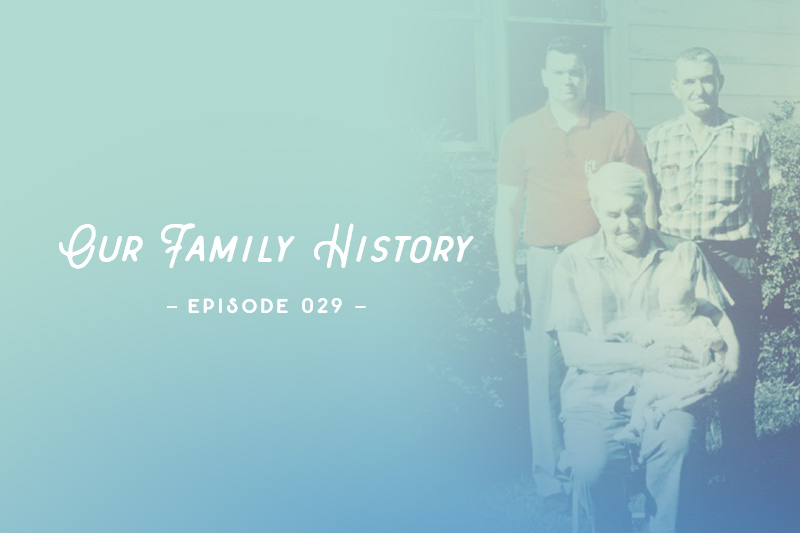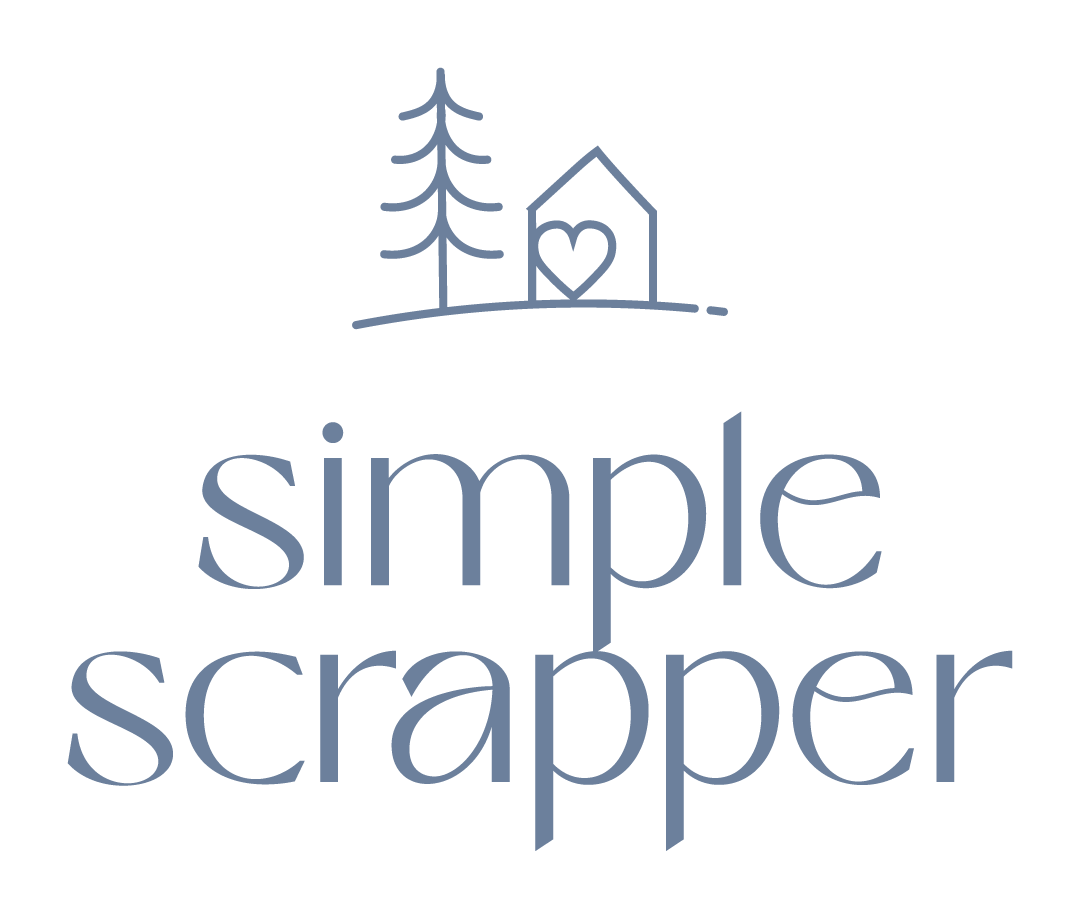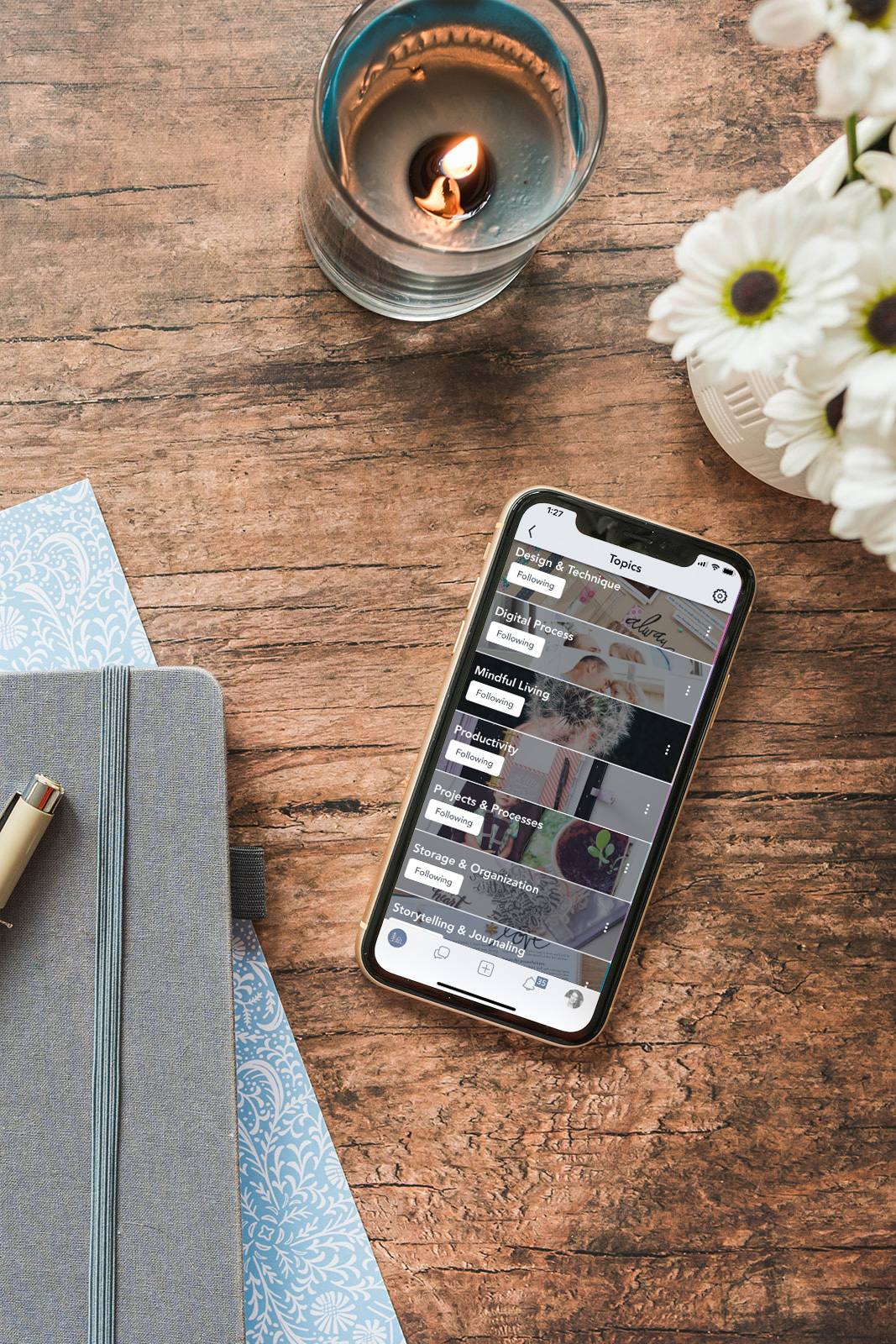
Steve Wilson is an enthusiastic amateur genealogist whose scientific training offers just the right combination of patience and attention to detail need for ancestry research. He is also my husband of eleven years. I’m excited to share Steve’s perspective on memory keeping and some of our family history insights in this episode of the podcast.
Links Mentioned
How to Subscribe
The best way to listen to Scrapbook Your Way is with a podcast player on your mobile device or with iTunes on your computer. You can subscribe via Apple Podcasts, Google Podcasts, or by searching for “Scrapbook Your Way” in your favorite podcast player in order to receive new episodes automatically.
If you’re enjoying the podcast, we’d love if you left a review on iTunes.


I am a Simple Scrapper subscriber and listen to the podcasts weekly. I was excited to see your family history episode and just finished listening. I’ve been searching my family history for about 15 years and consider myself an advanced amateur genealogist. I am a much better genealogist than I have ever been or ever will be a scrapbooker!
I have been able to prove my family history back to Revolutionary War ancestors, Mayflower ancestors and, surprisingly to me, royal ancestors in Europe. I haven’t done this with Ancestry, although Ancestry is a tool, but, in most cases, with hard records from archives and libraries. Steve is right! You have to “make sure” you have the right ancestors.
I’d like to give my two cents on what someone should do when starting their family history search:
1) Do not put your family tree on Ancestry only. There are several very good free genealogy programs (https://legacyfamilytree.com/ or http://www.rootsmagic.com/ are two I use) for both Mac and PC and, for only a few dollars, you can “upgrade” to even more robust versions of the same software. If for any reason, your Ancestry subscription expires, all the records you have accumulated will not be available to you. Do your genealogy on a platform YOU control and upload to Ancestry or Family Search so others can access it. I cannot say this more strongly. Make sure you have your genealogy on a platform you control. This would also help with Steve’s issue of two individuals on Ancestry in research process. If they were not on Ancestry until proven, no one could attach to the wrong individual. I don’t like Ancestry’s business model. If Steve proved information on someone else’s tree is untrue, they should fix it and not let it propagate everyone else’s trees. Family Search does the same thing but they don’t charge you for it. Personal opinion.
2) Go to https://www.familysearch.org/wiki/en/Begin_Your_Genealogy_Quest. It is a great “checklist” of things to do when starting out. While you are there, check out their website. It is similar to Ancestry but it is FREE! If I were a newbie, I’d start there.
3) Visit https://lisalouisecooke.com/beginning-genealogy/. Lisa is a genealogy rock star and her website is a vast help in learning about researching your family history the right way. Her podcasts (Genealogy Gems) are OUTSTANDING! She is a delight to listen to.
4) Visit http://www.findagrave.com. Ancestry has links to FindAGrave, but you can access it for free directly. If you know where your ancestors are buried and they aren’t in the database, do the world a service and add them. They even have a way to leave virtual flowers on the graves.
5) Look for obituaries. Everyone’s obituary. You may think you know everyone your grandmother was related to, but her obituary, and the obituaries of her brothers and sisters, may give you much more information than you may ever glean from online sources. There are three sources for obituaries… FindAGrave (see above) has many added by the relatives of the deceased, the library for the locality in which they died or were buried and the cemetery or funeral home. Call both the library and cemeter(ies) to see if they can help you collect them. You may need to pay for copies or research time, but it will be well worth it.
6) Join your local genealogy society. You will make new friends with your same interest and you will have their combined knowledge as resources when you hit the inevitable brick wall. I’m a member of my local society, the Ohio Genealogical Society (I live in Texas but have a lot of ancestors in Ohio) and the National Genealogical Society. NGS has meetings all over the country and OGS somewhere in Ohio annually and I’ve learned a great deal at those meetings. If you are really ambitious and serious about genealogy as a hobby, I would strongly recommend you attend at least one NGS meeting. My first meeting changed my genealogy life.
7) Start a Facebook page for your family history and make it public. Facebook is a form of memory keeping so use it! Don’t post anything on living people, but share the stuff you have found. Others are looking for the same things you are and may find you through Facebook. Also, it is a great way to share that “Look! I found my great-grandmother’s birth certificate” with your whole family!
Jennifer, thanks for bringing the topic up. I started scrapbooking to record the information I was finding in my family history search so, I agree, the two are complementary. I hope my suggestions aren’t too much!
This is a great list of resources! Thanks for sharing your insights.